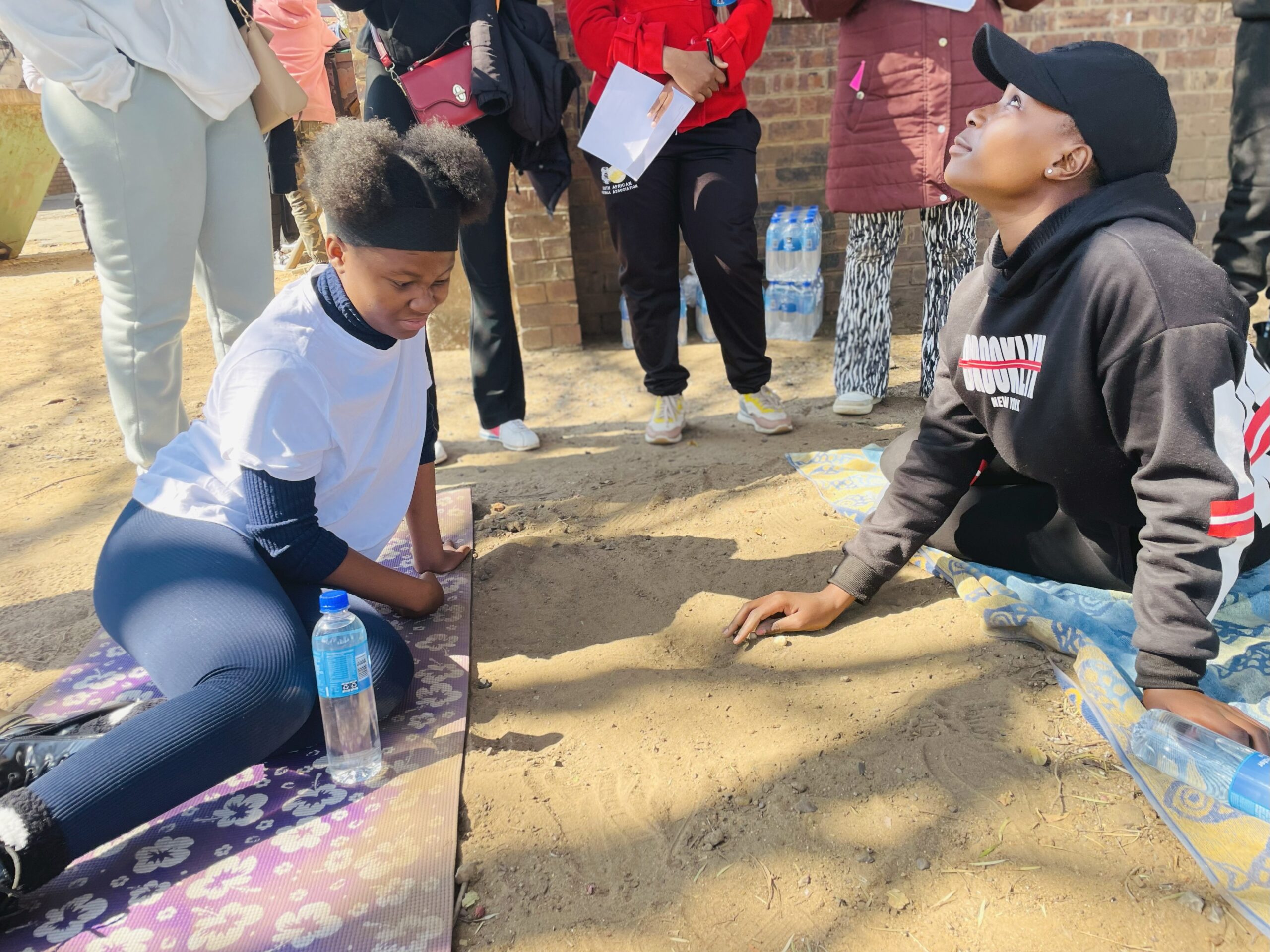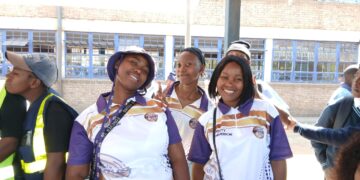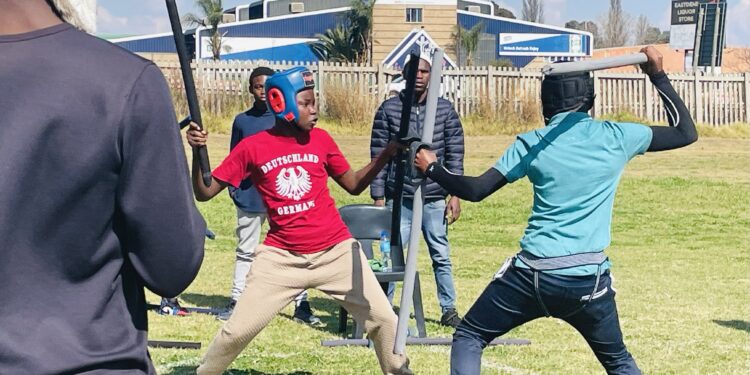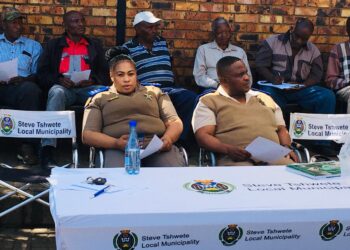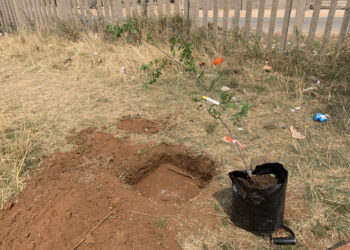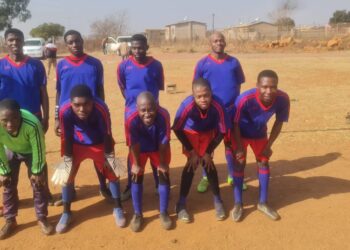SHARON CHILOANE & NODICAH FUNDAMA
EMALAHLENI – Before there were screens, there were stories told through play and in circles of children leaping through the air. Those were the days when joy was found in the simple, shared moments.
The Mpumalanga Indigenous Games Festival held on 26 July brought these shared moments again at Pumas Rugby Stadium.
Hundreds gathered — children, elders and families — to witness not just competition, but culture in motion through the games of our ancestors.
“We’ve gathered here today from across the Nkangala District, not just to compete, but to secure a place in the upcoming Provincial Indigenous Games. These trials are about more than sport — they’re about safeguarding our cultural identity. Through this initiative, we aim to ensure that our children remain connected to their roots and don’t forget the games that shaped our communities,” said Nomasotsha Skhosana from the Department of Sport, Arts and Culture.
The stadium throbbed with energy as nine indigenous games unfolded across the field, each one stirring memories, carrying the echo of who we’ve been and who we still are.
Near the centre, where chalk lines marked ancient geometry, players leaned into morabaraba boards with their eyes locked and tokens clicking in quiet tension. Morabaraba is a game of wits played on a wooden board, where each player moves twelve tokens with one goal in mind — to form ‘mills’ or straight lines of three, and capture the opponent’s pieces before they do the same.
Thabiso Dube from Middleburg, a sharp-minded 21-year-old who first picked up the morabaraba game in high school said it helped him with something deeper. “At first, I was just watching my uncles play,” he recalled. “They never explained the rules — they just told me to observe, to listen. That’s how I learned. That’s how I fell in love with it.”
Now, years later, morabaraba has become more than just a game to him. “You have to think beyond what’s in front of you. It’s not just a game — it sharpens your mind and connects you to the wisdom of those who played before you. When I play, I feel like I’m speaking the language of those who played before me.”
Precision over power- the Jukskei
Along the outer edge of the fields, players took their position for Jukskei. With wooden pins in hand, players aim at distant targets. It was precision over power, focus over force.
Long before 20-year-old Nomathemba Shabangu ever held a jukskei pin, she was already known in the quiet streets of Delmas, not for being loud, but for her stillness. “Jukskei isn’t loud, but it’s intense,” she said. “You don’t win with strength — you win with patience and precision. Every throw feels like a conversation with the air.”
For her, the game is a teacher of restraint and staying composed under pressure. “It’s a sport that makes you feel seen in a different way. Focus becomes your superpower. I think many girls would fall in love with it if they just gave it one try.”
Intonga and kgati games
Not far off, two young men circled each other with focused intensity. Their movements were fluid and controlled, striking and blocking in a dance as old as time. This was intonga: the art of stick fighting. A test of agility, strategy and honour — one long stick to strike, a shorter one to defend.
Karabo Letlape (19) from KwaMhlanga didn’t come chasing victory. There was a time when Letlape struggled to contain his temper but everything changed the day he stepped into the stick-fighting ring.
“People think it’s about fighting,” he said, gripping the stick lightly in his palm. “But it’s really about balance. You need to stay calm, stay present. For me, it teaches self-control — like life, you can’t just attack. You have to read the rhythm.”
On the other side of the field laughter exploded as girls skipped through a twirling rope through a game called, kgati. A skipping rope whipped through the air, turned by two while others leap in rhythm, chanting old songs of play and power.
Lerato Mahlangu (16) from Emalahleni was one of those playing kgati. “It’s not just a game, it’s joy,” she said. “We laugh, we sing, we challenge each other. It brings everyone together — even the shy ones end up jumping.”
Drie stokkies and incuva games
Next to the kgati game, bursts of energy lit up the field during drie stokkies. Players ran and leapt over three sticks of different lengths. Sanele Ndlovu (19) from Belfast, said: “It tests your limits. Drie stokkies is where adrenaline meets pride. I think everyone should try it at least once.”
On the eastern side of the field, players crouched in silence under the trees. It was incuva that had brought them together. Played in hollows dug in the earth, pebbles clack and slide as players try to capture their opponent’s pieces.
“Incuva calms me,” said Siyabonga Masilela from eNtokozweni, formerly known as Machadodorp. “You can’t be loud, you can’t be fast. It teaches you patience. It makes you think before you act. That’s something we all need more of.”
He didn’t learn the game on a screen or at school, he learnt it seated in-between his grandfather’s feet in the slow afternoons of childhood. Two decades later, he’s passing it on to his nephew. “That’s how culture stays alive.”
Diketo, a game of timing and focus
Not far from the shade where incuva players were immersed in deep concentration, another circle had formed the rhythm of diketo as it drew a quiet crowd. Stones clicked against the earth in a blur of motion, one tossed into the air while the rest were scooped from a shallow hole with practiced ease.
It was a game of timing and focus.
At the centre of it sat Ayanda Dlamini from Tweefontein, who learnt diketo by watching, imitating and failing until she mastered the rhythm instinctively. “People think it’s just about speed,” she said. ”But it’s really about control. Your mind has to be still, your hands sharp.”
Darting and dodging in a ‘wild’ game
About 10 metres away, another game was in motion, where two teams darted and dodged, kicking the dibeke ball with precision and weaving past defenders with instinct more than thought.
It was fast.
Fierce.
And full of fire.
For Precious Mokoena, dibeke is not just about scoring — it’s about the rush, the connection and the feeling of being fully present. “It’s wild,” she laughed. “You don’t even think — your body just knows what to do. I love that it pushes me. It’s fast, it’s raw, and when we play, the field feels alive.”
The 18-year-old from Kwaggafontein wishes more schools and communities supported the game. “Every community needs this,” she said. “It teaches teamwork and builds confidence.”
A lethal touch
All games seemed to pause when kho-kho players knelt in lines, one team chasing, the other fleeing in a fast-paced game of agility and strategy. In the heart of these manoeuvres was Jeffrey Mokwena, whose presence on the field held weight.
“I started playing kho-kho back in 2015 while I was still [in] school,” Mokwena shared that over the years, that passion carried him from the streets of Siyabuswa to an international stage in India. “To the young ones out there, believe in yourself no matter where you come from. If your heart is in it, there’s no limit to how far you can go.”
When the sun began to dip behind the stadium stands, cheers softened and what lingered long after the final whistle wasn’t just scores or victories, it was something far deeper.
A reignited pride.
